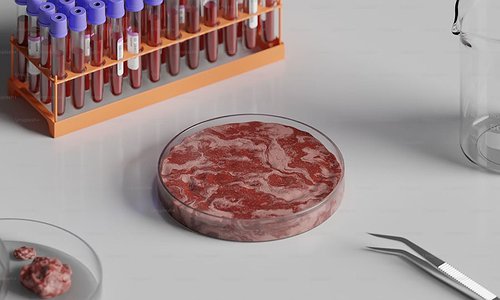First study about erectile dysfunction to include black men
Ground breaking research conducted at Cedars-Sinai Medical Centre in Los Angeles confirms that daily exercise can improve sexual function in all men who suffer from erectile dysfunction (ED).
What makes the research so significant is that for the first time a study was done that represented a racially diverse group of men. Previous studies that linked ED to an unhealthy lifestyle mostly underrepresented black men.
Nicole Jennings, spokesperson for Pharma Dynamics - a generics pharmaceutical company specialising in men’s health, among others - says in a country such as South Africa, where the majority (78%) of men that are 20 years and older are black, the findings are significant.
“About 2.7 million men in SA over the age of 40 (roughly about 40%) suffer from erectile dysfunction- which affects a man’s confidence and almost every other aspect of his life. Simply put, ED is the inability to get or maintain an erection firm enough to have sexual intercourse. The stress resulting from the condition often impacts relationships and leads to loss of productivity at work, which makes it a major health concern,” says Jennings.
Researchers at Cedars-Sinai Medical Centre in the US asked 300 men to define their level of physical activity, after which they were categorised into sedentary, mildly active, moderately active and highly active groups. Participants were also asked to report their levels of sexual function, including their ability to have an erection and orgasm, as well as the quality and frequency of their erections and overall sexual function. They found that men who exercised 18 metabolic equivalents (METS) – which is equal to about two hours of strenuous exercise, such as running or swimming or 3.5 hours of moderate-intensity exercise or six hours of light exercise per week – were most likely to have an erection. Erectile function also improved by a significant 17.3 points in the group that exercised the most.
Jennings said that most men experience erectile dysfunction at some point in their lives, usually between the ages of 40 and 50, however nowadays doctors are diagnosing the condition in younger men too. About a quarter of men complaining of ED are younger than 40.
“ED is usually a precursor to cardiovascular disease (CVD), hypertension and/or diabetes as a result of an unhealthy diet, sedentary living, smoking and drinking too much alcohol. Almost 80% of ED cases can be ascribed to an unhealthy lifestyle. The condition is typically treated with Phosphodiesterase-5 (PDE-5) inhibitors (such as Sildenafil), which temporarily increases the blood flow to a man’s penis, but it is recommended to support the use of medication with a healthy lifestyle for best results.”
When it comes to the type of physical activity that will yield the best results, Jennings says there’s no one-size-fits-all approach, as long as the exercise includes aerobic or cardio exercise, where the repetitive contraction of large muscle groups gets your heart to beat faster while pumping more blood through your vessels.
“For an erection to occur, the penis must be supplied with sufficient blood. When patients cannot achieve erections regularly, it is often a sign that they have hardened arteries or atherosclerosis, therefore it makes sense that exercise could improve sexual function.”
In addition to aerobic exercise, researchers also recommend the following exercises to restore erectile function:
- Pelvic exercises: The University of the West in the UK found that pelvic muscle training assisted 40% of men with ED to regain normal erectile function.
- Yoga: A study conducted by the Department of Neurology at Dr Ram Manohar Lohia Hospital and GGS-IP University in New Delhi, India, found that after only 12 weeks of Yoga, all 65 male participants (most of whom were over the age of 40 and experienced ED to some degree) reported a significant improvement in sexual function, including ejaculatory control and orgasm.
- Weight-training: Both cardio and resistance training is said to improve the functioning of the endothelium – the inner lining of blood vessels – which in turn, could improve erectile functioning.
“If you've consistently experienced ED over several months, make exercise a priority in conjunction with a healthy diet, whilst also making an appointment with your doctor to rule out the possibility of vascular, neurologic or endocrine-related health problems,” suggested Jennings.
Submitted by: Brigitte Taim / MEROPA
Subeditor: Xandri Coetzee



